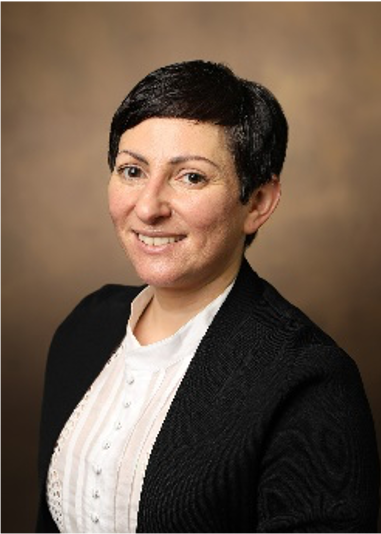Maria Hadjifrangiskou, Ph.D.
More Information
Bacterial Signal Transduction and Multicellular Behavior in Uropathogens
Dr. Maria Hadjifrangiskou (Dr. H or just Maria), is a native of the island of Cyprus in the Mediterranean. She has obtained her B.Sc. in Molecular Biology & Biotechnology from Clarion University in PA, her Ph.D. in Microbiology & Molecular Genetics from the University of TX – Health Science Center & MD Anderson Cancer Center, Houston and has performed her post-doctoral training at Washington University School of Medicine in Saint Louis. In addition to being a bacteriologist and a space nerd, Dr. H. loves to run, cook (so lab members have plenty to smile about), read her favorite Fantasy/Sci-Fi novels (Hail to C.J. Cherryh and the Foreigner Universe; and still mourning the loss of Terry Pratchett) and engage in long MTG sessions. Her dream (besides being inducted to the National academy…) is to qualify for the Boston marathon and meet C.J. Cherryh.
Dr. H is very open and urges her students to feel free to come to her office with any questions, suggestions, ideas and concerns they may have. She hopes to run a productive but also a very happy and fun lab. Her dreams are coming true, so far, minus that Boston Marathon Qualification… and meeting C.J. Cherryh… so far. There is still time!
Research Information
Urinary tract infections (UTIs) are among the most frequent bacterial infections, are highly prevalent among women and have a high degree of recurrence. Currently, antibiotics are the primary treatment option for UTI, however they are increasingly failing to eliminate infection, they perturb the host microbiota and select for increased antibiotic resistance. This means that there is a pressing need for the development of alternative strategies for preventing and/or treating UTIs. Uropathogenic Escherichia coli (UPEC), which causes the majority of community- and hospital-acquired UTIs follows a transient intracellular lifestyle in the bladder that allows it to evade host immune defenses and establish reservoirs that perpetuate acute infection and recurrence. Part of this lifecycle includes the formation of biofilm-like communities inside bladder cells, in addition to forming extracellular biofilms on host cell surfaces and on catheter implants. My lab is studying: (1) The ways in which UPEC can sense changes in its surrounding environment and thereby accordingly alter its behavior as it transits through different host and environmental niches. We specifically studying the contribution of closely related interacting signaling networks in mediating bacterial behavior. (2) The factors contributing to and the hierarchy of biofilm formation, aiming to define specific stages in the pathway that can be targeted therapeutically. To achieve our goals, we use a wide variety of approaches, including classical genetics/molecular biology tools, cell-based and in vitro assays, chemical biology, the excellent -omics cores available to us through VU and VUMC, robust mouse and 3D-tissue models of UTI, as well as partnerships with urology colleagues that allow us to perform longitudinal studies investigating E. coli isolates from humans.

